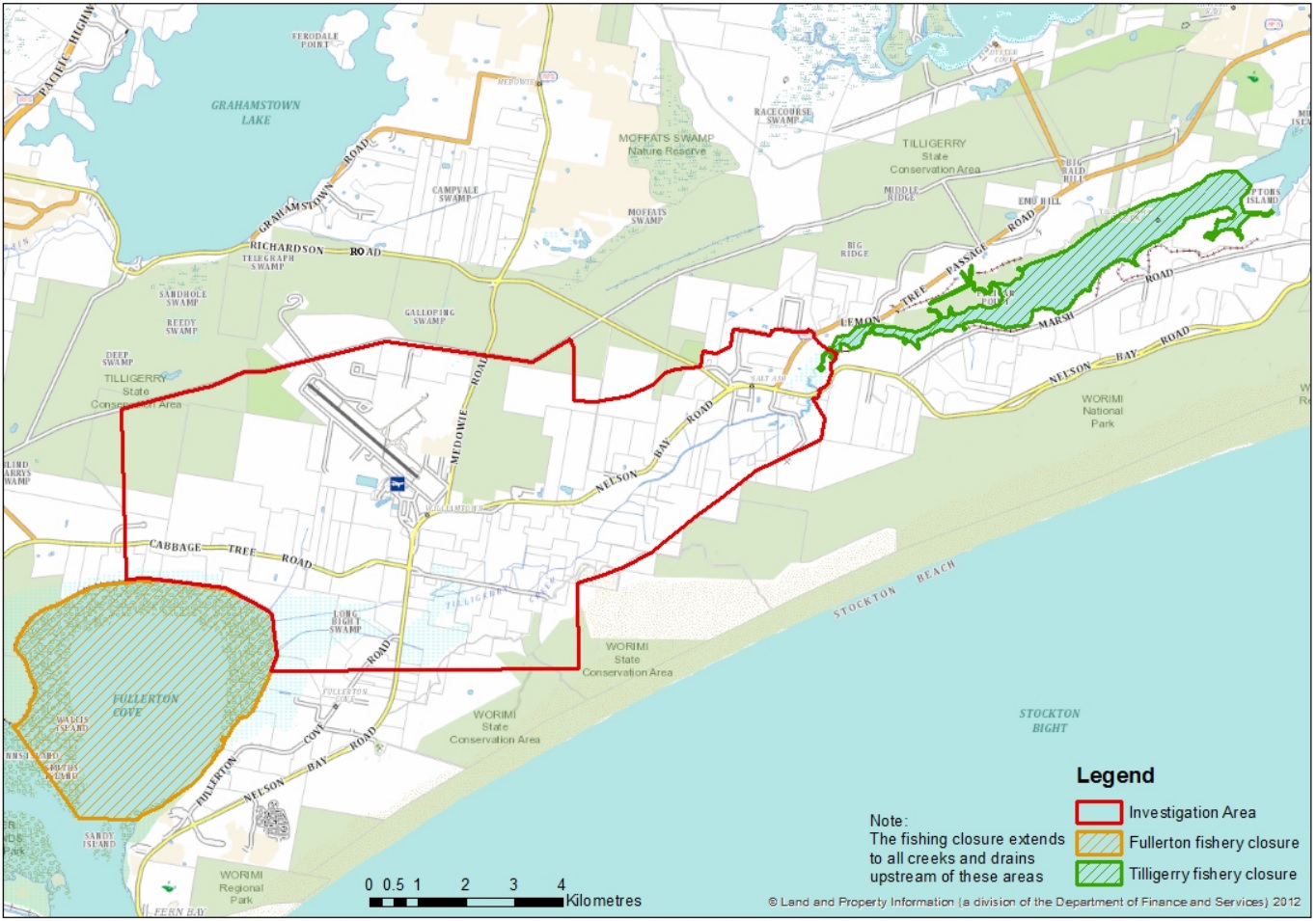Expert Panel recommends further eight-month ban on fishing while human health risk assessment undertaken
It's been recommended the ban on fishing in the Williamtown contamination zone, near Newcastle, be extended until mid-next year, while a comprehensive human health risk assessment is carried out.
The Expert Panel examining the contamination threat from the chemical leak at the local RAAF base has recommended the current ban on commercial and recreational fishing in Upper Tilligerry Creek and Fullerton Cove should continue for a further eight months.
Some species of fish have been found to contain concerning levels of Perfluorooctane Sulfonate (PFOS) – the chemical found in firefighting foams formerly used at the Williamtown base.
Chair of the Expert Panel, NSW Chief Scientist & Engineer Mary O'Kane, said there is a clear need for a full and thorough human health risk assessment.
"The Panel has discussed at length the urgent need for a comprehensive human health risk assessment, and the extensive sampling and testing of not just fish – but also of water, meat, fruit and vegetables, dairy, eggs, honey and other produce that would be required," Professor O'Kane said.
"Extensive testing is needed to determine the exposure risk posed by individual food groups, as well as calculate the cumulative risk to someone who consumes several types of food on a daily basis.
"That process will take some time to complete due to the large volume of samples and limited laboratory capacity - and, therefore, we've resolved to recommend the ban on commercial and recreational fishing be extended for an additional eight months," she said.
Professor O'Kane acknowledged the impacts the extended ban will have on the industry.
"This recommendation will indeed have consequences for local fishers, and the Department of Primary Industries – Fisheries will work closely with the industry moving forward," she said. "However, we have acted to provide clarity and certainty around this process over the short to medium term."
The proposed ban on commercial and recreational fishing in the designated area is recommended to remain in place until 30 June 2016. Meanwhile, the Expert Panel has restated the need for local residents to heed other precautionary advice until the human health risk assessment is complete.
As such, residents who live inside the investigation area should not:
drink or prepare food from private water bores, or water from dams, ponds, creeks or drains (town water is safe)
eat eggs from backyard chickens or milk from cows and goats that have been drinking bore water or surface water in the area; and
eat fish, prawns or wild oysters caught in the nearby area.
The Expert Panel was established to provide informed scientific advice to the NSW Environmental Protection Authority to help develop the NSW Government's response to the Department of Defence in relation to investigations to characterise and manage offsite contamination from the RAAF base.
